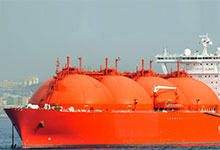
Publication
Canada announces new financial crimes agency
Canada is tightening their financial regulation and enforcement.


Global | Publication | April 2017
This article was originally published in Gastech in March 2017
The LNG industry is experiencing unprecedented uncertainty and volatility. As a result of the economic instability, relationships between buyers and sellers, producers and contractors, as well as governments and producers, have become more fractious, resulting in an increasing number of disputes in the LNG space. The parties in an LNG project will fight to preserve value or cut their losses in difficult market conditions.
Discord and LNG contracts/Price review and price reopeners: Pricing provisions in SPAs—price reopener and price review clauses—are particularly vulnerable to dispute. Pricing has been and still is a common point of contention under long-term SPAs. Given the confidentiality of long-term SPAs, there is very little transparency about how prices are specified, what actual transaction prices are, or when pricing terms change. The potential for significant disagreement exists because the interests of buyer and seller do not align—the buyer is often times looking to the local pipeline gas market, and the seller is looking to the international LNG market.
Take-or-Pay: Take-or-pay clauses are also a frequent subject of dispute. Take-or-pay conditions, whereby the buyer pays the supplier for specified quantities of natural gas, LNG, or facility capacity irrespective of the buyer’s needs, continue to be standard in Gas Supply Agreements (GSAs), Terminal Use Agreements, and long-term SPAs.
While some long-term agreements may require the buyer to take in excess of a set percentage of the annual contract quantity or capacity, recent agreements tend to grant somewhat more flexibility, allowing for quantity or capacity adjustments in specified circumstances. But even in today’s increasingly liquid LNG market, sellers are generally resistant to giving buyers firm up- or down-flex. Just as the scarcity of natural gas supply set the stage for take-or-pay wars in the U.S. in the 1980s, the introduction of natural-gas priced LNG into a market historically dominated by oil-pricing has started another period of take-or-pay disputes.
Diversion and destination flexibility: Destination restrictions on purchased LNG have been the subject of recent arbitral disputes. Traditional SPAs often contain provisions relating to restrictions on the destination of purchased LNG. These restrictions are often seen in two different types of clauses:
Destination restrictions and related issues of profit-sharing, re-exporting, and source flexibility under long-term SPAs are areas where policy is still developing and, thus, are the subject of recent disputes and investigations by the EU Commission.
Creditworthiness: Buyers have responded to uncertain market conditions by seeking more flexible arrangements, and thus, the trend is towards more short-term or spot trading. While spot and short-term LNG trades provide greater flexibility in terms of different market prices and options, the short-term contracts do not grant the security that a long-term contract provides. One significant impact of the introduction of new players in the LNG trade is to the risk profile. Issues related to ‘counter party’ risk due to uncertainty of the identity and capability of new entrant off-takers have been the genesis of recent litigation.

Publication
Canada is tightening their financial regulation and enforcement.
Subscribe and stay up to date with the latest legal news, information and events . . .
© Norton Rose Fulbright US LLP 2025